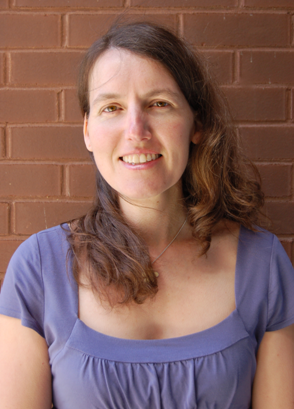On Tuesday, September 18, 2018 CFICE presented Evaluating Impact in Community-Campus Engagement: Towards a Community-First Approach.
In this webinar, our presenters gave an overview of some diverse approaches to capturing and communicating impact within academic institutions and with their community partners. The webinar touched on:
- What community impact looks like in specific campus-community projects and why measuring it matters to the Government of Ontario;
- How post-secondary institutions can and define and measure community impact in a way that resonates with the needs of local community priorities and encompasses the global reach of the university or college; and
- Some of the promising ‘community-first’ practices related to institutionalizing and sustaining impactful CCE.
Video Link
If you missed out on the day-of presentation, not to worry. We’ve made it accessible below.
Resources
The following items were shared by the presenters:
Community Impacts: Metrics and methods from the perspectives of: i) Ontario Higher Education Policy and ii) the Community development sector — Slide deck by Dr. Isabelle Kim
Higher Education, Impact, and the United Nations SDG’s — Slide deck by Dr. Crystal Tremblay
What are some promising community-first practices related to institutionalizing and sustaining impactful CCE? — Slide deck by Magda Goemans
- Guidelines for rewarding Community Engaged Scholarship at University of Victoria, developed by Crystal Tremblay.
- 12 case studies on measuring community engaged scholarship
- Recognizing Excellence in Community Engaged Scholarship (PDF)
- Campus Engage’s “Measuring Higher Education Civic and Community Engagement” report.
- Embedding an Ethic of Community Engagement in PSIs – Literature Review of Engagement Measurement Tools
As well, one attendee asked the following question, which could not be addressed during the webinar: My experience with CCE impact (bigger picture) is that we need co-governance between community and higher ed partner and govt., funding inside and out and a legal structure(e.g. non-profit) to sustain the effort beyond the dependency on HE admin leaders- comments?
Dr. Isabelle Kim provided the following written response: I 100% agree that co-governance is key. U of T instated a CCP Advisory Council composed of staff, students, faculty and community partners. While this is not a ‘governing body’ as the CCP is not a non-profit organization and the council is not a board of directors, the CCP most definitely takes into consideration the advice of its council members in all aspects of our planning and programming and this council plays a key role in the future developments of the CCP’s work.
Presenters
 Crystal Tremblay is an Assistant Professor in the Department of Geography and Special Advisor on Community Engaged Scholarship at the University of Victoria. She is a social geographer and community-based scholar activist with over a decade of international experience doing research on topics related to resource governance and livelihood enhancement. She specializes in using participatory video and arts-based methods for community engagement, capacity building and program evaluation working across sectors with higher education institutions, government, and civil society organizations. She is passionate about cultivating new spaces for creative citizen engagement and the co-creation of knowledge leading to environmental and social equity. Crystal has done extensive research and projects on CCE funding, impact and policy in Canada and is eager to support building a long-term movement and infrastructure for lasting change, which benefits communities and incentivizes academia. For more information, please visit her website: http://www.crystaltremblay.com.
Crystal Tremblay is an Assistant Professor in the Department of Geography and Special Advisor on Community Engaged Scholarship at the University of Victoria. She is a social geographer and community-based scholar activist with over a decade of international experience doing research on topics related to resource governance and livelihood enhancement. She specializes in using participatory video and arts-based methods for community engagement, capacity building and program evaluation working across sectors with higher education institutions, government, and civil society organizations. She is passionate about cultivating new spaces for creative citizen engagement and the co-creation of knowledge leading to environmental and social equity. Crystal has done extensive research and projects on CCE funding, impact and policy in Canada and is eager to support building a long-term movement and infrastructure for lasting change, which benefits communities and incentivizes academia. For more information, please visit her website: http://www.crystaltremblay.com.
 Magda Goemans is a PhD candidate in the Department of Geography and Environmental Studies, and a research assistant with the CFICE Evaluation and Analysis Working Group. A current focus of her CFICE efforts includes research on best practices for institutionalizing impactful CCE. Magda’s doctoral work involves a critical analysis of household perspectives of climate change risk and adaptation action in Halifax and Ottawa. Her research interests relate to climate change adaptation, disaster mitigation and citizen engagements with urban ecologies in Canadian cities.
Magda Goemans is a PhD candidate in the Department of Geography and Environmental Studies, and a research assistant with the CFICE Evaluation and Analysis Working Group. A current focus of her CFICE efforts includes research on best practices for institutionalizing impactful CCE. Magda’s doctoral work involves a critical analysis of household perspectives of climate change risk and adaptation action in Halifax and Ottawa. Her research interests relate to climate change adaptation, disaster mitigation and citizen engagements with urban ecologies in Canadian cities.
 Isabelle Kim, Ph.D, has twenty years of experience working in community-based health, education and research, public engagement and international development in Canada and abroad. She has worked on a wide range of different community development projects, including medical and nursing education; community arts youth projects; mental health and HIV/AIDS education; women’s health and girls’ education in Afghanistan, food security in Pakistan; national advocacy and public education campaigns on climate change, and other global social justice issues. In August 2017, she was appointed Director of the University of Toronto’s Centre for Community Partnerships (CCP). She also teaches graduate courses in educational research methods and cooperative learning at the Ontario Institute for Studies in Education. Isabelle’s involvement with CFICE began in Fall 2017, when she joined the working group on community impacts. In Spring 2018 she chaired a regional roundtable on community-campus engagement, co-hosted by the CCP and CFICE, which brought together over 50 staff and faculty from colleges and universities in Ontario, as well as community partners, and higher education policy perspectives. Her current research is exploring the different ways in which community impacts are conceptualized and measured by academic, community development and policy sectors, and the implications for sustaining reciprocal community-university partnerships.
Isabelle Kim, Ph.D, has twenty years of experience working in community-based health, education and research, public engagement and international development in Canada and abroad. She has worked on a wide range of different community development projects, including medical and nursing education; community arts youth projects; mental health and HIV/AIDS education; women’s health and girls’ education in Afghanistan, food security in Pakistan; national advocacy and public education campaigns on climate change, and other global social justice issues. In August 2017, she was appointed Director of the University of Toronto’s Centre for Community Partnerships (CCP). She also teaches graduate courses in educational research methods and cooperative learning at the Ontario Institute for Studies in Education. Isabelle’s involvement with CFICE began in Fall 2017, when she joined the working group on community impacts. In Spring 2018 she chaired a regional roundtable on community-campus engagement, co-hosted by the CCP and CFICE, which brought together over 50 staff and faculty from colleges and universities in Ontario, as well as community partners, and higher education policy perspectives. Her current research is exploring the different ways in which community impacts are conceptualized and measured by academic, community development and policy sectors, and the implications for sustaining reciprocal community-university partnerships.
 Moderator: David Peacock, Ph.D, is the Executive Director of Community Service-Learning in the Faculty of Arts at the University of Alberta, Canada. His research encompasses global service-learning, student equity policy and practices in higher education, curriculum theory, community-university engagement and ‘first generation’ university students’ participation in experiential learning programming. David is active in developing Canadian networks for community-engaged learning and research.
Moderator: David Peacock, Ph.D, is the Executive Director of Community Service-Learning in the Faculty of Arts at the University of Alberta, Canada. His research encompasses global service-learning, student equity policy and practices in higher education, curriculum theory, community-university engagement and ‘first generation’ university students’ participation in experiential learning programming. David is active in developing Canadian networks for community-engaged learning and research.